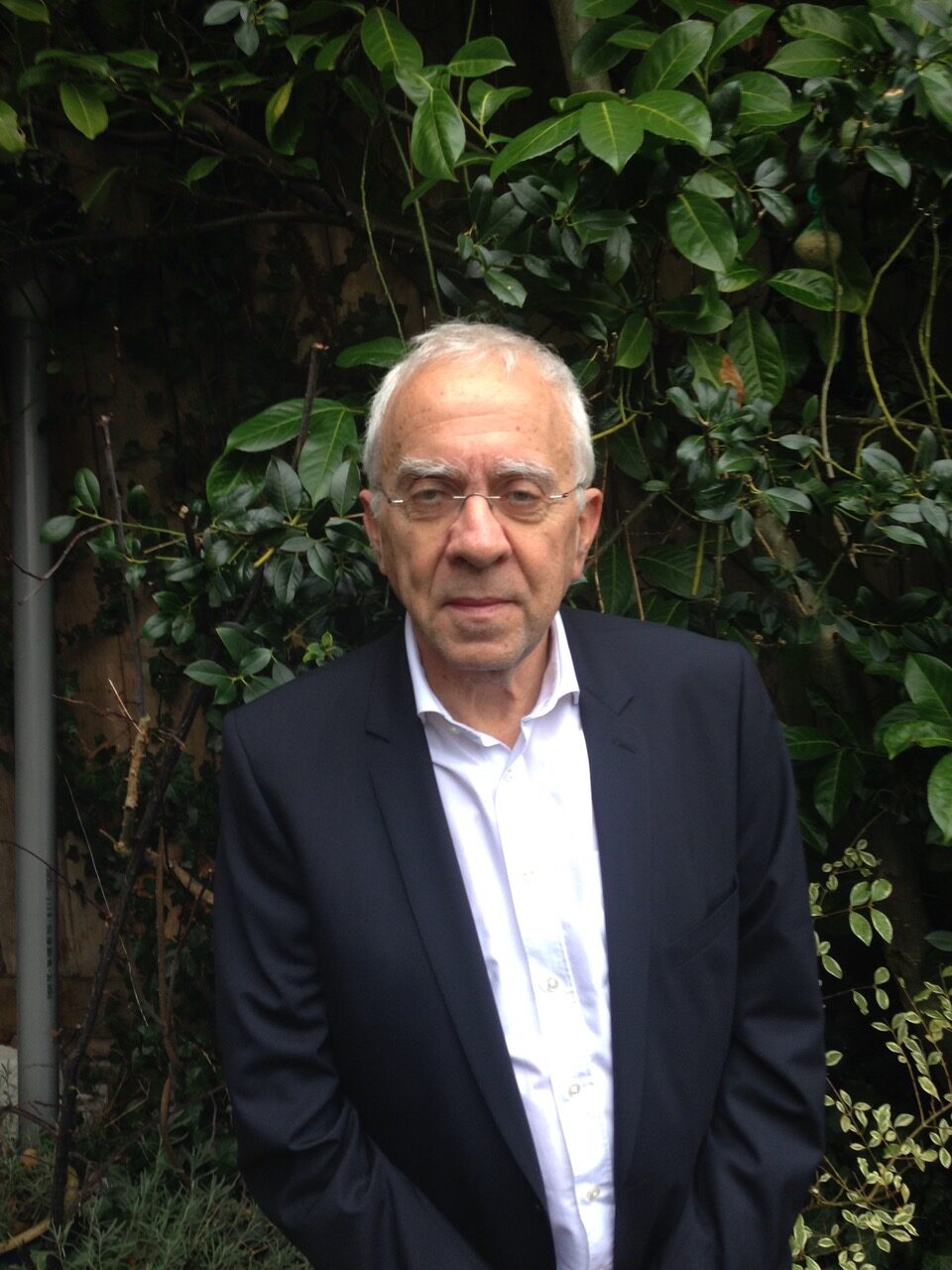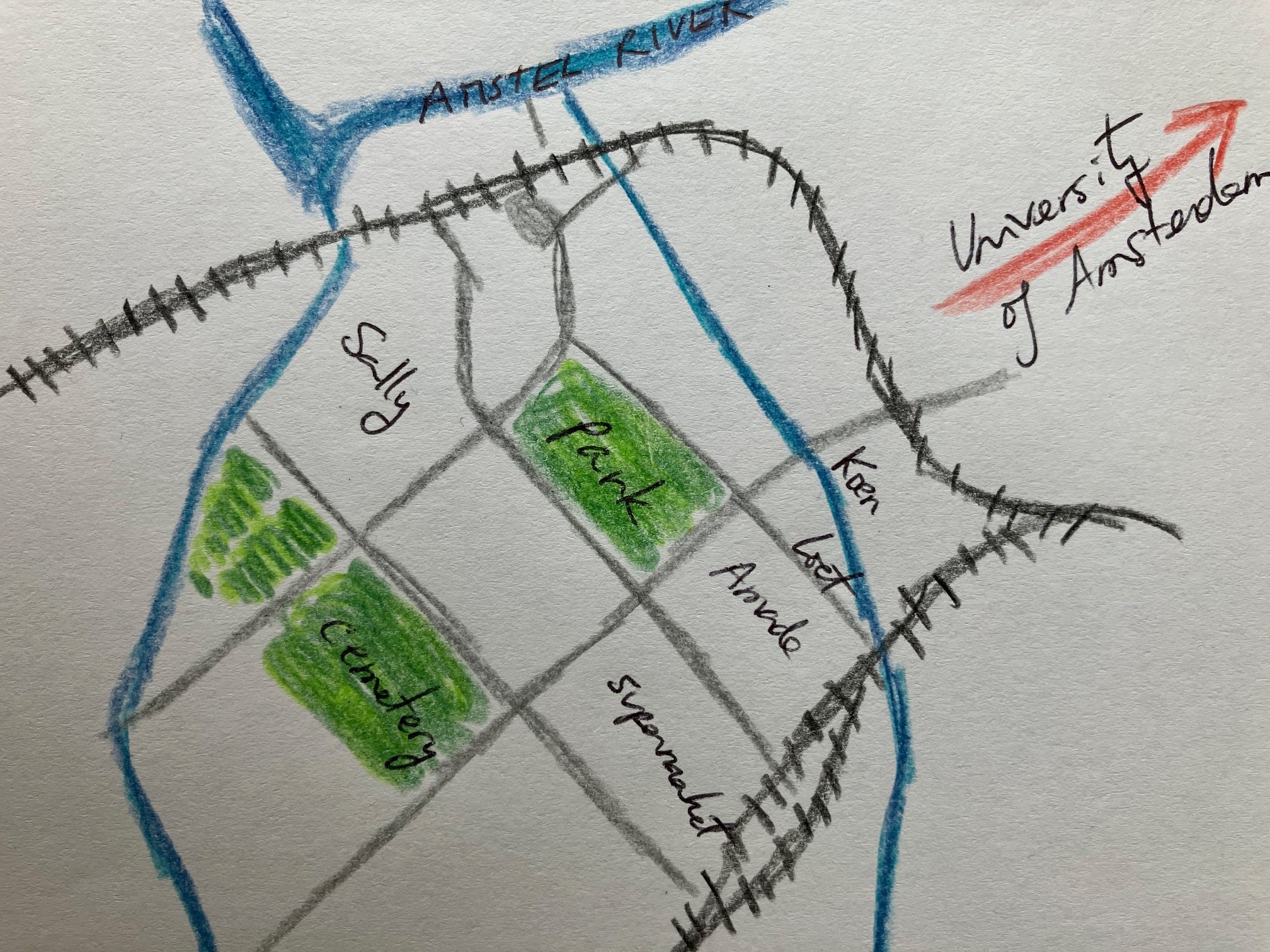
Written version of text spoken on the occasion of Loet Leydesdorff’s funeral, 20 March 2023, Amsterdam
Sally Wyatt, Maastricht University
Ik ben Sally Wyatt. Ik heb met Loet bij de UvA gewerkt begin deze eeuw. Inmiddels spraken we vaak Nederlands, maar voor deze gelegenheid gaat Engels mij beter af.1
Dear Margaret, Loet’s family, friends and colleagues,
Loet was my colleague and friend, and I will miss him. In 1999, I moved to Amsterdam, very much a stranger in a strange land. Loet had met me only once or twice before then [at EASST conferences], but nonetheless he made an effort to invite me for coffee and to Wetenschapsdynamica2 events. I am confident he had papers to write and data to analyse, but he still thought about how he could make me feel welcome. I will always be grateful for that.
A year later, after the UvA’s (University of Amsterdam) unusual decision to abolish its renowned interdisciplinary groups, including Wetenschapsdynamica, we both found ourselves in Communicatiewetenschap/ASCoR (Communication Studies/ Amsterdam School of Communictions Research). There we were two STS strangers together in another strange land. There were three great things about having an office close to Loet.
First: He always had chocolate. Sometimes one needs a piece of chocolate in the late afternoon and he would always share. I hope I replenished his chocolate supply from time to time.
Second: He was a world-class scientometrician, awarded the Derek de Solla Price Memorial Medal in 2003. Always useful to have one nearby. I currently have the pleasure of preparing the research evaluation for my faculty. I received some analyses from my university library last week. I am pretty sure one is wrong, but that’s just an instinct. My first thought was to ask Loet to help me articulate the questions to take back to the library about how to interpret a particular visualisation (of links between our publications) and the CNCI ‘category normalised citation impact’. This also prompted me to wonder if the UvA is ready for its drop in the world research rankings. Will they still count Loet’s citations?3
Third: I always knew when he was there because I could hear him laugh. Loet had a very distinctive laugh, sometimes nervousness, but more often a sound of intellectual pleasure and excitement. I miss that laugh.
Loet studied chemistry, then philosophy and sociology at the UvA4, and worked there throughout his career. When he retired, I was also asked to say a few words. Less challenging than today. On that occasion, I mentioned a mutual colleague who claimed that Loet could write faster than most of us could read. I also called for a ‘Loet co-author support group’. With most co-authors, you do your bit, send it off to your fellow author, hope you won’t hear anything for a while, and get on with other things. That is not how it worked with Loet. You would get a detailed revised manuscript back, usually within hours. If it was more than 24 hours, I’d start to worry if he was OK. My idea for this support group was that we could alert each other when we needed someone else to keep him busy. Today we need another kind of support, and it is wonderful to see so many people here.

I began by saying Loet was my friend. Friendship takes different forms. Loet was not someone I spent my youth with at wild parties nor in late-night political discussions. Nor was he someone I would ever go clothes shopping with. But we connected in other ways, and we took each other seriously. Sometimes very seriously. I once bumped into Loet in our mutual Albert Heijn (Dutch supermarket chain). He asked what I had been reading. I was thinking about my shopping list and what to make for dinner. What I had been reading was probably more important in the grand scheme of things.
Quite frankly, Loet was way smarter than I am. He did me the great kindness of assuming I understood what he was saying. Eventually I would get there, but maybe a while later. My role when we wrote together was to try to make sure other people could understand him as well.5
In some of the online comments about Loet that have appeared in the past week, and in the private messages I have received, people refer to him as a ‘legend’, an ‘inspiration’, a ‘towering figure’ but many also mention his kindness and generosity. These are Loet’s very best qualities – making strangers feel welcome, sharing chocolate, and taking people seriously.
I drafted this on Friday afternoon while sitting in the garden of Café Merkelbach in Park Frankendael, not far from here (De Nieuwe Ooster, the cemetery where Loet is buried in Amsterdam), and about halfway between where we live. Loet and I would meet there some Friday afternoons to talk about what we were reading and writing, and more personal concerns. It was often the two of us, occasionally Margaret (Loet’s wife) and Hans (my partner) joined us. For me, it is now a place to remember Loet and his kindness.
1 Translation: I am Sally Wyatt. I worked with Loet at the University of Amsterdam at the beginning of this century. In recent years, we usually spoke Dutch together, but for this occasion, English is easier for me.
2 Translation: Science Dynamics, STS department at the University of Amsterdam, closed in 2000.
3 Google Scholar indicates that there are more than 70,000 citations to Loet’s work, one of the most cited Dutch scholars in the social sciences.
4 For further information about Loet’s career and publications, see: https://www.leydesdorff.net/
5 Heur, Bas van, Loet Leydesdorff, and Sally Wyatt. “‘Turning to Ontology in STS? Turning to STS through ‘Ontology’.” Social Studies of Science 43, no. 3 (2013): 341–62.
Wyatt, Sally, Stasa Milojevic, Han Woo Park, and Loet Leydesdorff. “Intellectual and Practical Contributions of Scientometrics to STS.” In The Handbook of Science and Technology Studies, Fourth Edition, edited by Ulrike Felt, Rayvon Fouché, Clark A. Miller, and Laurel Smith-Doerr, 4th ed., 87–112. Cambridge, MA: The MIT Press, 2017.
Wyatt, Sally, and Loet Leydesdorff. “Ontology in Science and Technology Studies.” In SAGE Research Methods Foundations, edited by Paul Atkinson, Sara Delamont, Alexandru Cernat, Joseph W. Sakshaug, and Richard Williams. Thousand Oaks, CA: SAGE, 2019.